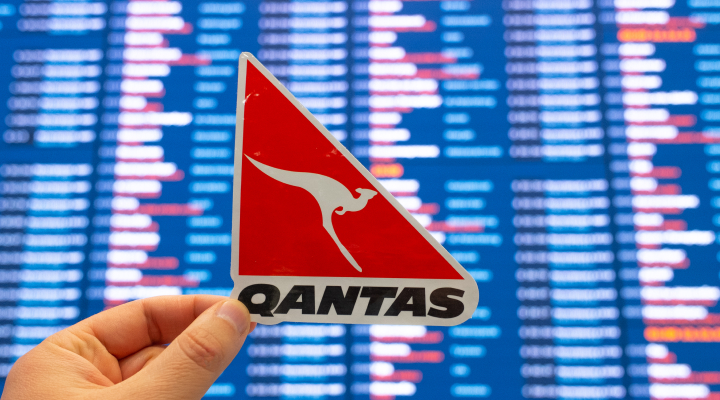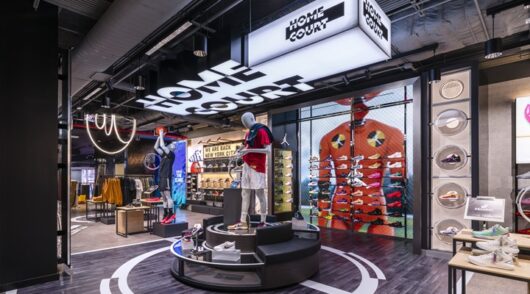Qantas has rejigged its loyalty program with the introduction of Qantas Marketplace, a new platform where members of its frequent flyer program can purchase products from over 900 premium and household brands. The marketplace replaces the Qantas Rewards stores and represents a major expansion into online retail for the airline. Customers can spend accumulated Qantas Points on over 20,000 products, more than 1,000 more than the previous platform, and brands on board include Apple, Bose and
e and Dyson.
According to the Australian Financial Review, Qantas Loyalty brought in $905 million in underlying earnings between the 2020 and 2022 financial year. The airline had 14.7 million loyalty members – exceeding its 2024 target of 12.9 million.
The organisation expects frequent flyer members to earn about 170 billion points and redeem 165 billion points in the 2023 financial year.
Qantas Loyalty CEO Olivia Wirth said the platform offers members a seamless and premium shopping experience that rewards them for every purchase.
“Our Frequent Flyers already earn more points on the ground than they do through travel. With Qantas Marketplace, we’re connecting them to hundreds of brands that they know and love, with the added benefit of being able to earn and use points,” she said.
“Australia’s love of Qantas Points has seen us build strong partnerships with some of the country’s biggest brands. These connections are key to keeping our members engaged in the program and ultimately drive value for our business.”
Qantas told Inside Retail that the new marketplace would emphasise fashion, beauty and homewares – with a particular focus on sustainable and First Nations brands.
The company added that frequent flyers will be able to earn at least three Qantas Points per dollar spent. This is up from two points under the previous system.
“Australia’s love of Qantas Points has seen us build strong partnerships with some of the country’s biggest brands. These connections are key to keeping our members engaged in the program and ultimately drive value for our business,” a Qantas spokesperson said.
Loyalty is in our currency
Qantas’ marketplace launch comes amid an intensification of cost of living pressures, which have seen retailers invest in, and emphasise, their loyalty programs as a means of retaining customers.
According to a consumer insights study by shopping app platform Klarna, in conjunction with Inside Retail, about 85 per cent of customers show greater loyalty to brands offering discounts, incentives, and rewards when marketed to them in a personalised way.
Further, Commonwealth Bank reported a 15 per cent year-on-year increase in redemption volumes for its credit card reward program in December 2022, according to a report in the Sydney Morning Herald. Spokespeople for Woolworths Everyday Rewards program and Wesfarmers’ Flybuys loyalty programs also reported an increase in the number of members redeeming offers.
A survey of 1,400 Australians by McKinsey & Co showed that consumers were 10 per cent more likely to shop at an organisation with a top loyalty program, and 14 per cent more likely to increase purchase frequency. The Australian Loyalty Association also found that 52 per cent of customers were willing to share data as part of a loyalty program, while 44 per cent of customers said they would stay loyal to brands that offered great value for money. This, despite the potential risks involved in data sharing.
A company that has promoted its loyalty program to great effect is Myer, via its Myer One program. According to its recent half-year results, 73.5 per cent of transactions came through the program, with the number of active members increasing by 4.1 million over the last 12 months.
Myer CEO John King recently told Inside Retail that it had increased the number of rewards and partnerships with other businesses, including Virgin Australia’s Velocity program, and recently American Express, which can be used online and in-store.
“We believe that loyalty programs are our currency. In times of economic hardship, people are looking to mitigate a lack of cash, and the points program is [a way to do that]” King said.
Super Retail Group – the parent company of brands including Rebel, BCF and Super Cheap Auto – recently invested $10 million into its personalisation offering, which includes an emphasis on new loyalty programs.
According to its half-year presentation, Rebel’s loyalty program is on track to launch in the second half of 2023, with Super Cheap Auto and BCF loyalty programs expected to go live in 2024.
Building loyalty through marketplaces
Qantas’ move to a marketplace follows a similar pattern by retailers and other organisations that have used this format to expand their offerings and build loyalty among their customer base.
According to a recent Inside Retail report, the city of Adelaide recently built a digital marketplace, which enables customers to purchase from more than 60 local retailers in categories including fashion, health and beauty, jewellery, homewares, toys, and food and beverage.
In December 2022, Nike launched its Web3-enabled platform Swoosh, a marketplace that allows users to trade digital objects such as virtual shoes and jerseys. It is set to extend to the physical realm, and allow members to unlock access to physical products and exclusive events.
Another to capitalise on the marketplace trend is Chemist Warehouse, which launched a closed marketplace in conjunction with Marketplacer. Chemist Warehouse’s head of ecommerce and digital customer experience Nick Blatt recently told Inside Retail that a goal was to allow the business to broaden its range without further cluttering its stores.
According to Qantas, the plan for the marketplace is to continue to expand its range of available products on offer, while also providing regular bonus points offers. Local brands that will feature include Scanlan Theodore, Rebecca Vallance, Jac + Jack, Country Road and many others.
“Qantas Marketplace will also be home to exclusive collaborations and designs between Qantas and leading brands,” a spokesperson said.







